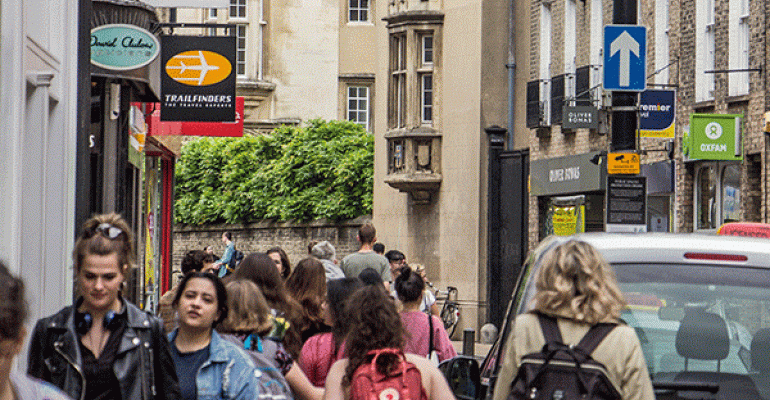In the summer I chose to do my third year dissertation on this surly trio: fruit, veg and university students.
I wanted to explore whether there was a gap between students’ abundant ‘green-ness’ in other forms (such as awareness, activism and vegetarianism), and their buying choices.
I aimed, through a survey, to investigate the percentage of students that are consistently buying based on environmental factors, such as organic and local, when it comes to their fruit and veg.
Following this, I wanted to interview individuals about what shapes their buying choices, beyond the often oversimplified (though occasionally correct) assumption that price is the holy driver of all student decisions.
Following a slow start, the survey and interviews are both under way. In both a couple of things have definitely stood out so far, although it’s still early days.

In the survey, what is becoming clear is that there are patterns in buying habits – a large number of students who ‘never’ specifically choose local produce also ‘never’ shop in local stores and ‘never’ buy organic.
Similar patterns are observed for ‘sometimes’ or ‘often’. Clearly, many are either thinking more deeply on multiple criteria during their shop or not so much at all. Saying that, overall (so far), more students ‘often’ shop for organic food over locally grown or locally bought food (from local stores).
The follow-up interviews, meanwhile, have been interesting and diverse. I have been surprised with quite a heavy emphasis that some have put on health and their food choices, as well as multiple interviewees noting it above the environment as the main reason they would change their purchasing habits.
Meanwhile, it’s emerging that there’s quite a limited understanding of organic, beyond that it’s “more natural and more expensive”.
Multiple interviewees have struggled to name any differences or benefits, although one student beautifully surmised: “It’s like free-range eggs but for vegetables”.
Nonetheless, this does beg the question: why would people choose to pay more on an item when they have no idea why it’s better?
Parents and peers are also starting to emerge as key players in student’s fruit and veg decision-making.
Interviewees so far have seamlessly slipped in that they do as their parents do, and I suppose that may not be surprising. If you’ve been traipsing after your mom or dad round Tesco’s for 18 out of 19 years of your life, you’re probably going to recycle some habits.
Beyond these, predictably, convenience and price are coming out on top as the reasons students shop how they do.
The additional effort to go to a local grocery store or read the back of packets and price-compare organic and local produce is something that students are unwilling, cannot afford, or don’t have the time to do. What is therefore becoming clear, and is something that organizations like Riverford advocate for, is a need for a greater connection to food.
When raised with questions, such as ‘would you rather your food be grown in the UK or abroad?’; ‘Would you pay a price of 6p more for your courgette in order that the farmers were able to reinvest in their farm?’; ‘Would you pay 15p more for it if it were pesticide-free, improved biodiversity, and produced 30 per cent less emissions?’, then the responses have been incredibly thoughtful

